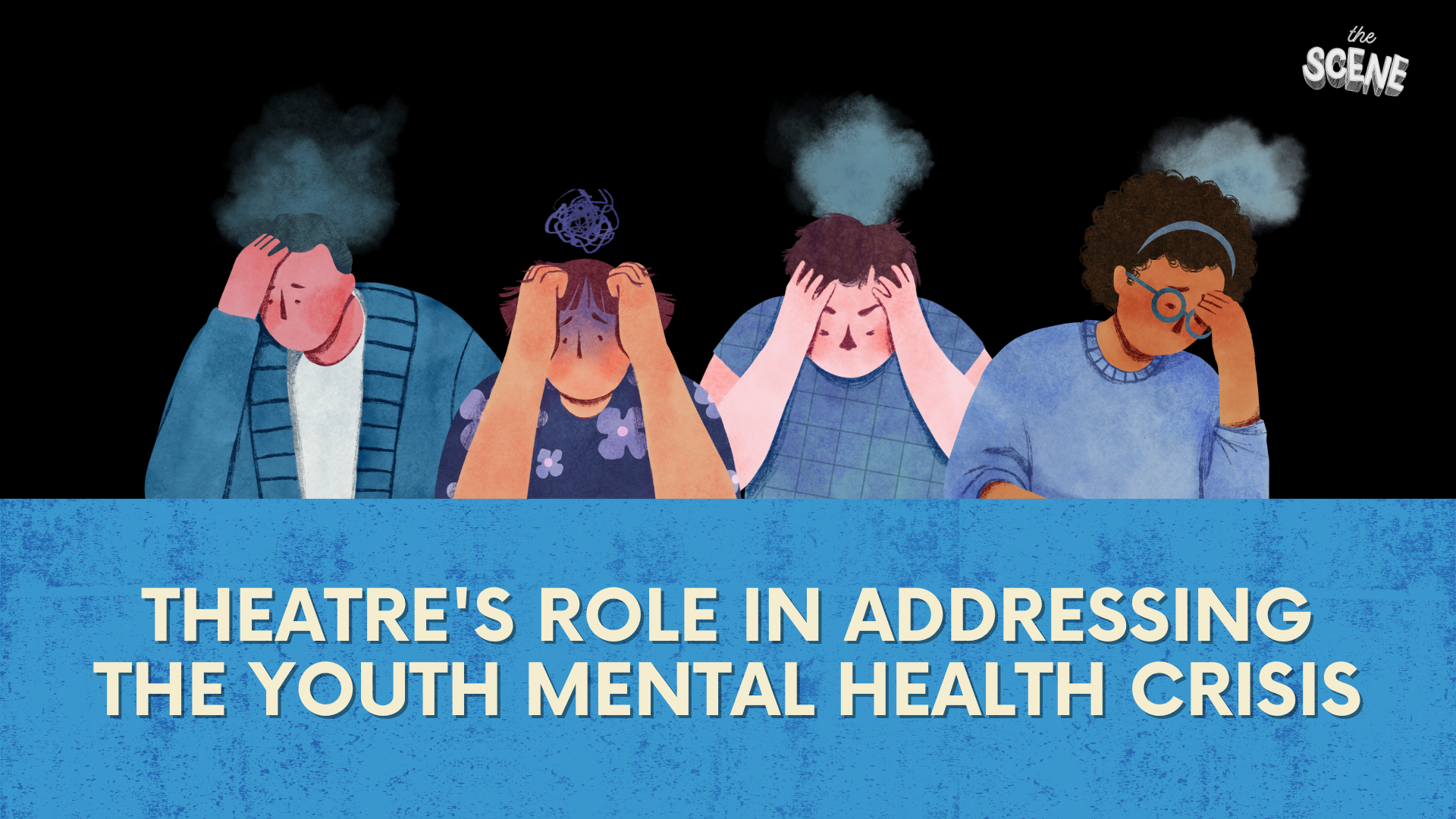by Zach Dulli, The Scene
The mental health crisis among teens and young adults has been escalating, fueled by factors like social isolation, economic uncertainties, and the pressures of digital life. Amidst this backdrop, innovative solutions are being sought to provide relief and support, and one surprising but potent therapy is theatre. With its unique blend of creativity, collaboration, and expression, theatre stands out as a compelling method for alleviating anxiety and depression. Here, we explore how engaging in theatre—as an audience member or participant—can offer significant mental health benefits for teens and young adults.
- Expression and Catharsis: Theatre has a unique ability to provide a platform for expression and catharsis. Teens and Young adults, often navigating identity issues and emotional turmoil, can find a voice through participating in theatre. By acting out different roles, they are afforded a safe space to explore personal and societal issues, express feelings, and experiment with their identity. This process can be profoundly cathartic, allowing individuals to process complex emotions in a constructive and supportive environment.
- Connection and Community: The sense of community in theatre groups can significantly impact mental health. Theatre requires collaboration and communication, fostering a profound sense of belonging and shared purpose among its participants. For teens and young adults feeling isolated or disconnected, being part of a theatre group offers more than just a network of support and friendship. It provides a lifeline where they can feel understood and less alone. This community aspect can reduce feelings of loneliness and depression, which is crucial in an age where isolation is increasingly common.
- Empathy and Understanding: Theatre, a powerful tool for fostering empathy, not only benefits individuals but also has the potential to shape a more compassionate society. Actors gain a deeper understanding of different perspectives and human experiences by stepping into another’s shoes. This increased empathy can lead to a profound shift in how we relate to others, fostering greater compassion and interpersonal skills and reducing prejudices and social anxiety. For teens and young adults, this broadening of perspective can enhance personal and social development, aiding in emotional maturity and the ability to navigate complex social environments.
- Mindfulness and Presence: Engaging in theatre can be a mindful practice, requiring present-moment awareness and concentration. For performers, the need to be “in the moment” and responsive can enhance focus and reduce the prevalence of ruminative thoughts, a common issue in anxiety disorders. Audiences, too, benefit from the immersive experience that theatre provides, offering a break from digital distractions and the stress of daily life.
- Skill Development and Confidence: Participation in theatre can build various skills, including public speaking, critical thinking, and emotional intelligence. Developing these skills can boost self-esteem and confidence, which are directly linked to mental well-being. For many teens and young adults, increased confidence in their abilities can mitigate feelings of inadequacy and self-doubt, which are common in depressive disorders.
- Evidence and Real-World Applications: Research supports the mental health benefits of theatre. A study by the British Journal of Psychiatry found that engaging in cultural activities like theatre can lower rates of anxiety and depression in individuals. Furthermore, therapeutic approaches like drama therapy have been recognized by the North American Drama Therapy Association for their effectiveness in treating individuals with mental health issues. Real-world applications are numerous. Schools and universities are increasingly incorporating theatre programs in their mental health initiatives. Community centers and non-profits offer theatre workshops aimed at vulnerable populations, including teens and young adults at risk of mental health disorders.
Theatre can be a powerful tool in addressing the mental health crisis among many teens and young adults. Theatre offers a multifaceted approach to enhancing mental well-being through its capacity for emotional expression, community building, skill development, and mindfulness. While it is not a panacea for all mental health issues, its inclusion in broader mental health strategies can provide significant benefits. It should be considered by educators, therapists, parents, and policymakers alike.
As society grapples with the growing mental health challenges facing teens and young adults, the creative and immersive world of theatre offers more than just an escape—it provides healing, connection, and a deeper understanding of the human condition, proving its worth as a valuable ally in mental health advocacy.
___
Disclaimer: The content provided in this article is for informational purposes only and is not intended as a substitute for professional medical advice, diagnosis, or treatment. Always seek the advice of your physician or other qualified health provider with any questions you may have regarding a medical condition. The views expressed in this article are those of the author and do not necessarily reflect any institution or agency’s official policy or position. While the benefits of theatre, as discussed, may support mental well-being, they should not be considered a comprehensive treatment for mental health disorders.









